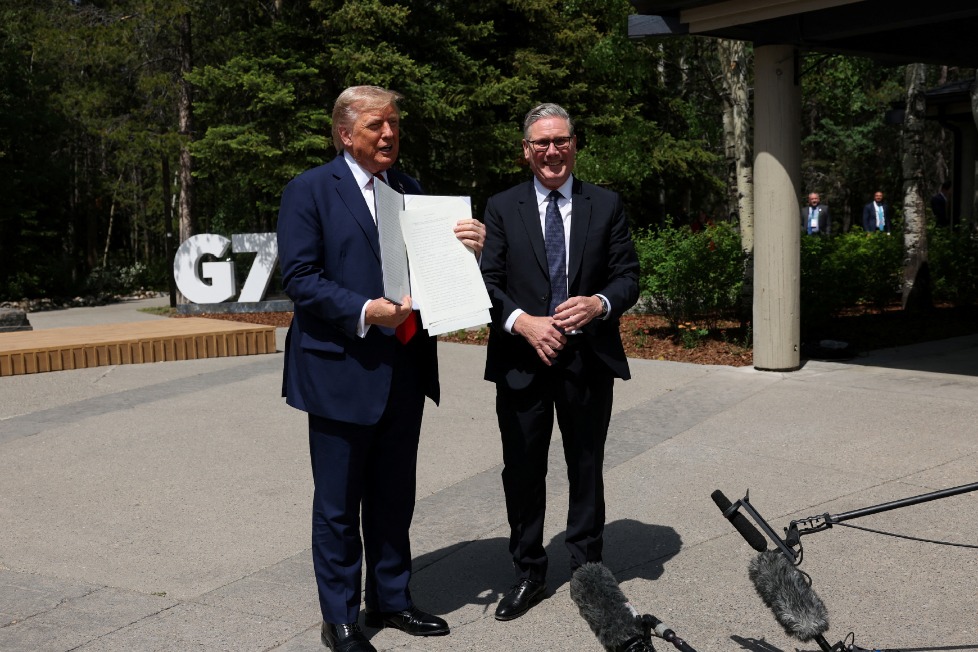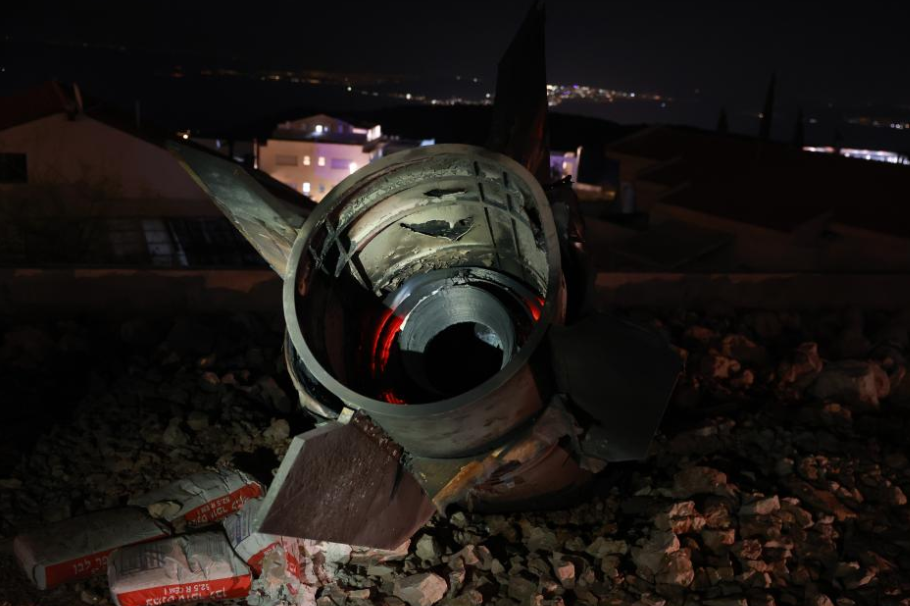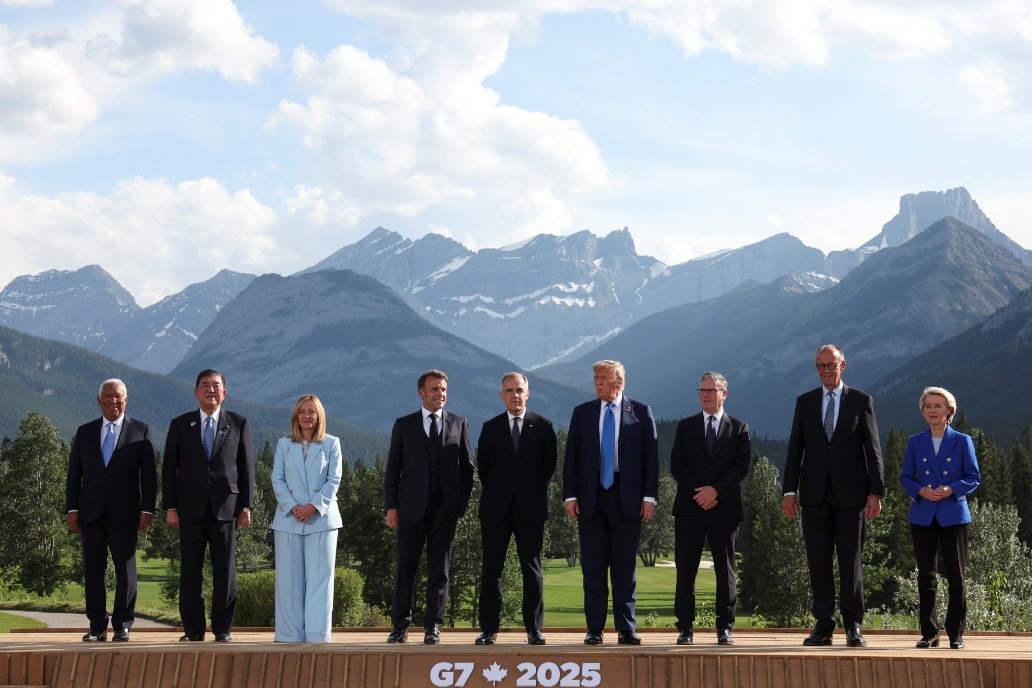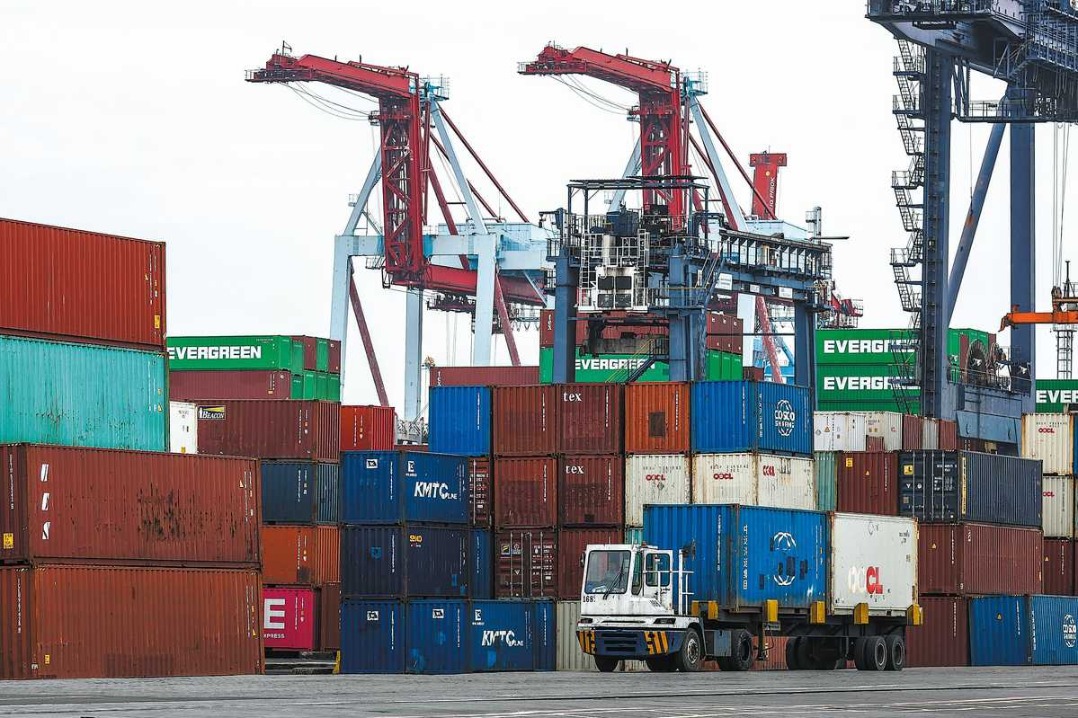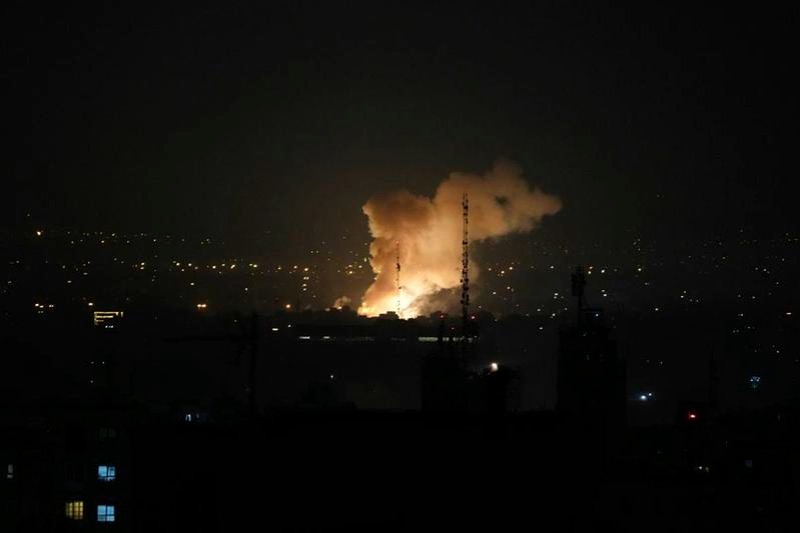Toxic friendship -- How Washington exploits Ukraine crisis to shackle Europe

BEIJING -- A report published Monday by the Stockholm International Peace Research Institute (SIPRI) indicated that military expenditure in Europe shot up by 13 percent in 2022 -- its steepest year-on-year increase in at least 30 years.
The United States provoked a conflict in Ukraine to "turn Europe into a vassal" and has managed to use the Ukraine crisis to "destabilise Europe," economist Pierre de Gaulle, grandson of former French President Charles de Gaulle, told French newspaper Le Parisien.
In fact, a self-serving United States never truly treats its "allies" as friends. The EU's strict sanctions against Russia, following America, have led to a tense energy supply, increased inflation, and a cost-of-living crisis across Europe. Meanwhile, American companies exporting energy are making a fortune.
Washington continues to fan the flame, seeking to prolong and expand the Ukraine crisis. Such a move will increase Europe's reliance on the United States for energy and security, and erode Europe's efforts towards strategic autonomy.
AMERICA BENEFITS MOST
In the factory of the Scranton Army Ammunition Plant in Pennsylvania, the United States, the old rails on the ground remind people of the era when steam locomotives were assembled in this building boasting a history of over a hundred years old. However, the factory floor is now busy cranking out shells to be shipped to Ukraine.
Churning out roughly 11,000 artillery shells a month now, the plant is undergoing a massive expansion, funded by millions of dollars in new defense spending from the Pentagon. It's hiring a few dozen additional workers and will eventually shift to a 24/7 schedule of constant production, according to a CNN report.
"It's certainly ramped up over the last year. As we bring in more modern equipment, it'll be able to ramp up even further," Todd Smith, senior director of General Dynamics Ordnance and Tactical Systems, which operates the plant for the Army, was quoted as saying by CNN.
The overtime work at the ammunition plant reflects the "prosperity" of the entire U.S. military industry. Since the escalation of the Ukraine crisis, the United States has constantly hyped up the "Russia threat" and incited European allies to continuously upgrade their military assistance to Ukraine and expand their own military capabilities.
Since late February 2022, EU countries have pledged to beef up their arsenals by some 230 billion U.S. dollars, with Germany alone planning to channel 100 billion euros this year to modernize its military, Yahoo News website reported in November 2022.
Military expenditure by states in Central and Western Europe in 2022 for the first time surpassed that in 1989, as the Cold War was ending, according to the SIPRI report.
American arms dealers benefit most from Europe's military expansion. European officials have accused the Americans of making a fortune from the conflict, while EU countries suffer. "The fact is, if you look at it soberly, the country that is most profiting from this war is the U.S. because they are selling more gas and at higher prices, and because they are selling more weapons," one senior official complained to the American magazine Politico.
To seize the opportunity to rake in huge profits, the U.S. Department of Defense set up a working group in August last year, jointly led by the policy department and the acquisition and sustainment department, responsible for evaluating and accelerating the implementation of foreign military sales.
In the energy market, the United States is also ruthless in fleecing its European allies. "A big winner from the energy crisis in Europe: the U.S. economy," The Wall Street Journal bluntly stated.
The EU imported around 94.73 million tons of liquefied natural gas (LNG) in 2022, compared to 57.27 million tons in 2021. The United States represented 41 percent of the supply in all of 2022 and stayed the EU's top LNG supplier, according to a report by the research firm Kpler.
Boosted by the surge in European demand, the performance of some U.S. energy companies has seen a turnaround. Chesapeake Energy Corporation, a U.S. shale oil and gas company, raked in up to 1.3 billion dollars of profit in the first nine months, while in 2020 the company filed for bankruptcy protection.
French President Emmanuel Macron accused the United States of creating "a double standard" with Europe as resentment builds over the economic price the continent is paying over the Ukraine crisis, Bloomberg reported in October 2022.
"The North American economy is making choices for the sake of attractiveness, which I respect, but they create a double standard" with lower energy prices domestically while selling natural gas to Europe at record prices, Macron said at a news conference in Brussels following a meeting of EU leaders.
Furthermore, the United States has taken advantage of the situation by introducing the "Inflation Reduction Act" to revitalize its own economy. Under the guise of reducing inflation, discriminatory subsidies are used to encourage businesses to relocate their production bases from Europe to the United States.
This will seriously weaken Europe's competitiveness in industries such as automobiles, batteries, and clean energy, and has caused strong dissatisfaction in Europe. Olivier Joris, manager of EU Affairs at the Federation of Belgian Companies, denounced the U.S. subsidies as "a protectionist stab in the back from the Americans."
"What worries us is that the investments will be directed more towards the United States than to Europe because of these local content obligations," said Joris.
EUROPEAN ECONOMY "BLEEDING TO DIE"
"I'm wearing an extra sweater, that's all," said Susan, a 102-year-old French woman.
Last year's winter in Europe was warmer than usual, but it has been particularly cold for the elderly at Cournot-Changey, a retirement home in downtown Gray, a commune in the Haute-Saone department in eastern France.
According to the French government's energy-saving regulations, the room temperature of the activity hall of this nursing home in Dijon cannot exceed 20 degrees Celsius, and the elderly have to add clothes to keep out the cold.
On the one hand, many people complain that it is not warm enough; On the other hand, energy costs are still rising, said Frederic Meunier, director of the retirement home. "I re-signed the electricity contract in July last year, and the electricity bill increased by 20 percent."
Since the escalation of the Ukraine crisis, the EU has followed the United States in imposing an embargo or price limit on Russian natural gas and petroleum products, which has obviously backfired.
The industrial chain and supply chain in energy and other fields were blocked, which pushed up the price level in an all-around way and shrank the real wages of the people.
Affected by the energy shortage, the energy bills of French enterprises once rose, and the aluminum, plastics and chemical industries were most seriously affected.
A textile factory in the French town of Luneville in the northeastern French department of Meurthe-et-Moselle worked only three days a week to save electricity.
Klaus Rudolph, who runs a restaurant in Lubmin, northern Germany, said that the local natural gas price had risen to about three times as much as usual, which led to an increase in operating costs.
Laura Ramoni, owner of the Big Mamy bar in Rome, Italy, told Xinhua that electricity bills at her bar soared during peak hours last year, forcing her to lay off two employees and raise coffee prices to stay afloat.
Senior Advisor to Ifri's Center for Energy & Climate, Cecile Maisonneuve, said energy prices in Europe have fallen as spring approaches, but external energy supplies remain tight. This situation, combined with uncertain developments of domestic nuclear and other new energy and OPEC's decision to reduce crude oil production, means Europe's energy woes will continue. She also noted that the gas and electricity meters could go back out of control.
The EU has time and time again followed the United States and increased sanctions against Russia. Fatih Birol, chief of the International Energy Agency, has warned that some parts of Europe could run out of diesel fuel this summer, with a crisis worse than the 1973 oil crisis looming. The Organization for Economic Cooperation and Development's 2023 economic forecast says Europe could face a very difficult economic situation if the energy crisis worsens. Hungarian Prime Minister Viktor Orban said the European economy is slowly bleeding to death from a massive energy crisis.
Why is Europe caught in such a dilemma? Europeans know exactly what the answer is. The economic knock-on effects of the Ukraine crisis "are going to be felt throughout Europe," according to a recent report published by the Jacques Delors Centre, a Berlin-based think tank.
"Direct costs from sanctions and trade disruptions, rising inflation due to higher energy and commodity prices and mounting uncertainty will become a drag on Europe's economy," said the report.
AMERICA: SITTING ACROSS THE POND, WATCHING ON
"With friends like that, who needs enemies?" A comment by Donald Tusk, former president of the European Council, is gaining increasing resonance.
Since the end of the Cold War, the United States has been pushing for NATO's continuous eastward expansion. While squeezing Russia's strategic living space, it also strengthened its political, military, and economic control over Europe. Today, the United States is capitalizing on the Ukraine crisis to further tie Europe to its own chariot, and by tightening control over Europe's strategic autonomy, it is continuously reaping benefits from its allies.
In fact, the United States has never wanted to see a united and autonomous Europe. Washington's politicians believe that a weak Europe permanently dependent on the United States best serves the U.S. interests.
Pascal Boniface, director of the Institute for International and Strategic Affairs in Paris, believes that this goal of the United States is gradually becoming a reality with the escalation of the Ukraine crisis. He said that in the eyes of Americans, NATO is a tool to exert influence in Europe.
In 2019, Macron cautioned that NATO was in the throes of "brain death," and European countries can no longer rely on the United States to defend its allies. Now, as NATO is tightening its grip over Europe, the continent's strategic autonomy is brain-dead.
The United States wants to eliminate any impulse for strategic autonomy among EU states, Andrey Sushentsov, program director of the Russia-based think tank Valdai Club, commented on Russia Today. "The Ukraine crisis provides a golden opportunity for this, as the United States and its allies in Eastern Europe have managed to create 'a moment of moral panic' in the information space, preventing any reflection on the causes and consequences of the crisis," he said.
Leaders and elites who might have been able to reflect with detachment and sobriety on the consequences of the slide of EU-Russia relations into a deep crisis are outnumbered and essentially voiceless, Sushentsov added.
Experts and political insiders believe that it is thus all the more important for Europe to strengthen its strategic autonomy.
If the EU wants to be a viable actor in the emerging world order and not merely an appendage of a superpower, "it must be able to protect itself instead of relying on outside help for its security," and "force strategic independence from the United States to ensure its political survival," British political analyst Thomas O. Falk wrote in an opinion piece published by the South China Morning Post.
Vowing to fight Russia "to the last Ukrainian," the U.S.-led NATO has gone to all lengths to fool Ukrainians into acting as a bridgehead for suppressing its neighbor and has driven, step by step, its so-called ally Europe to the dangerous quagmire of warfares and crises.
With no end in sight to the fighting in Ukraine, the EU has become financially exhausted with the drawn-out conflict on its doorstep, Modern Diplomacy magazine commented on its website, stressing that it is certainly not the first time Washington has tricked the international community into a war.
"This is while the United States, sitting across the pond, watching on and observing, is making huge profits," it added.
















